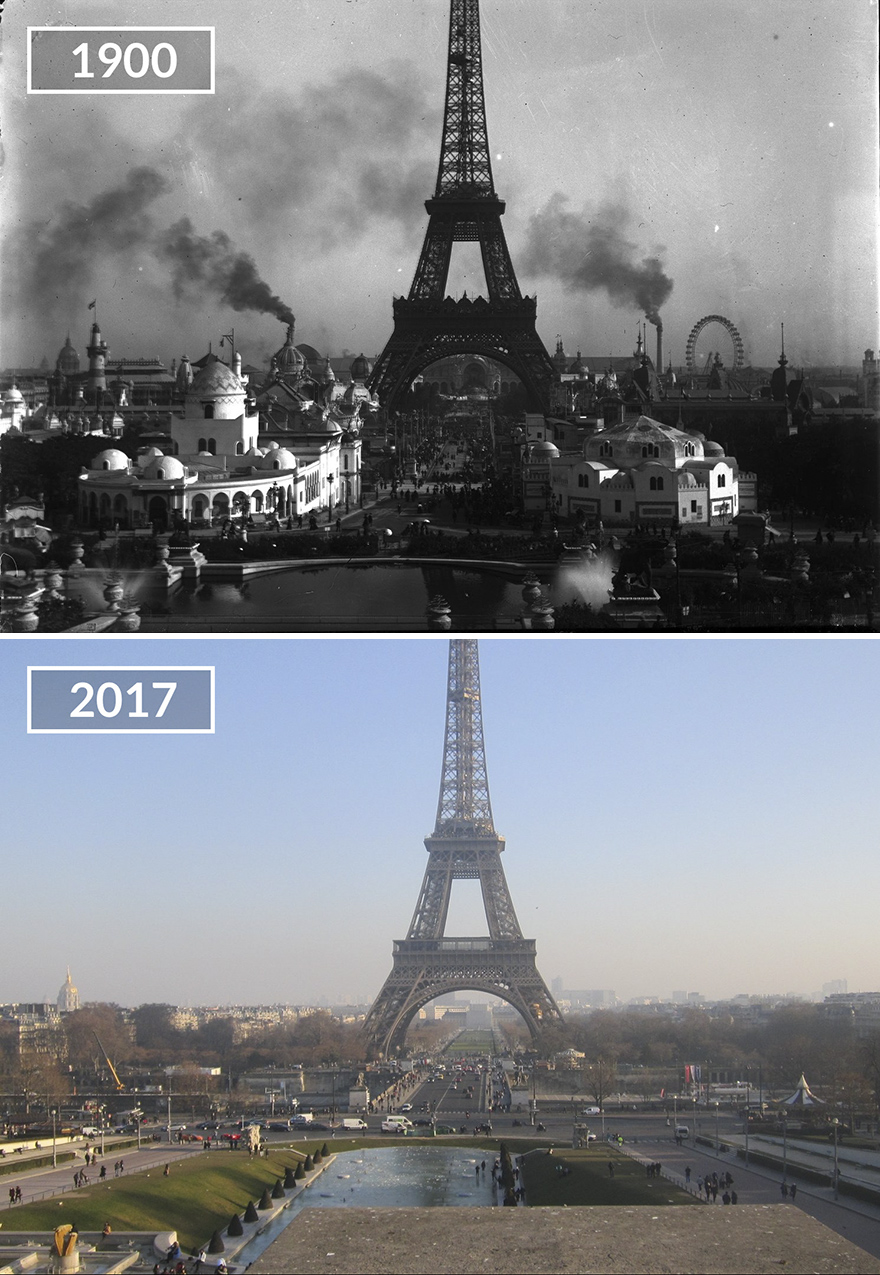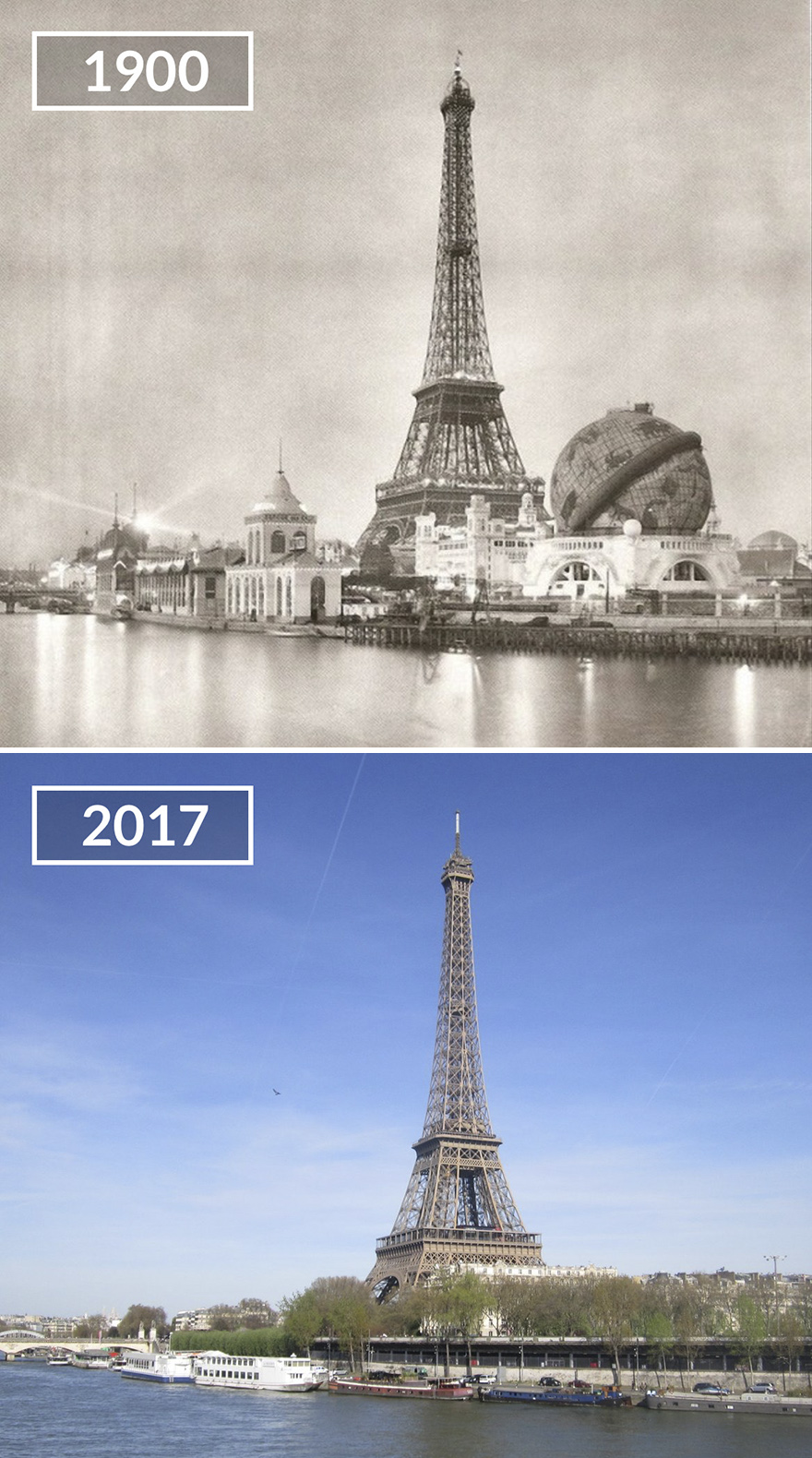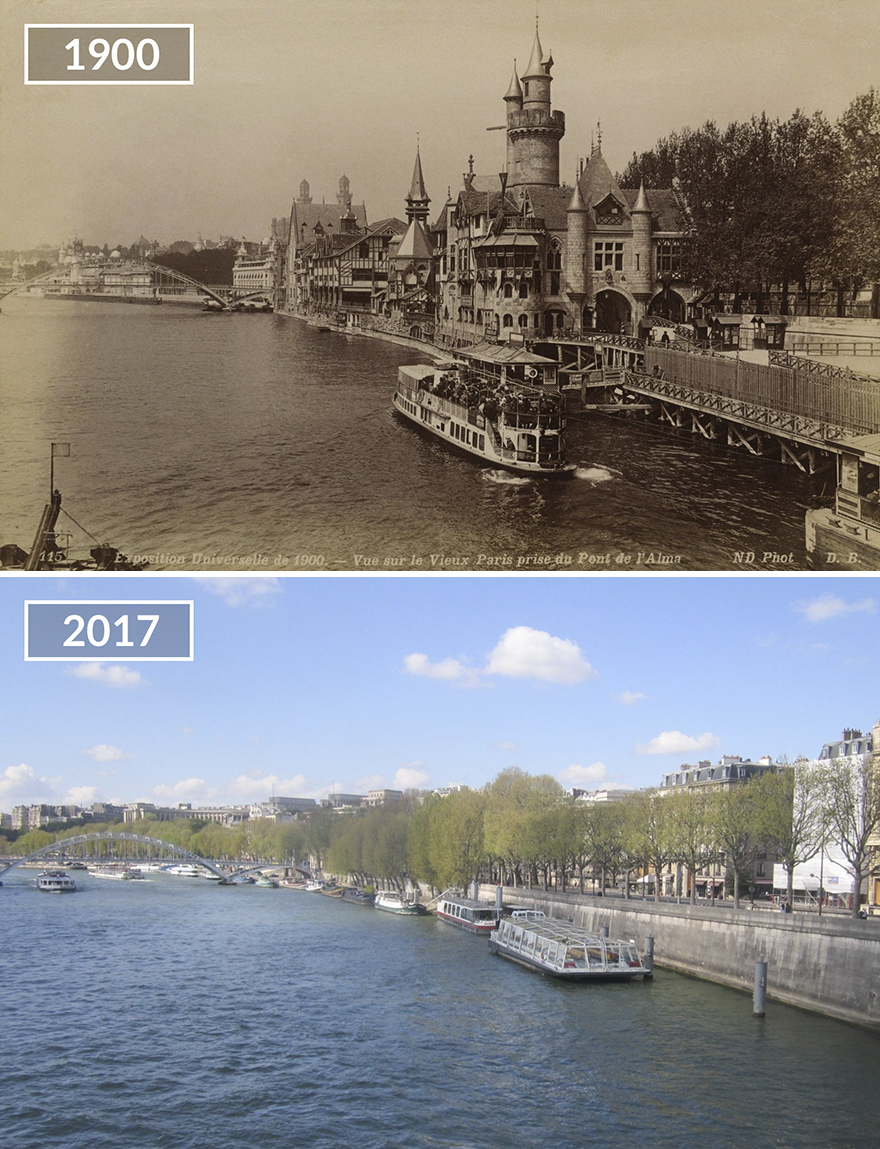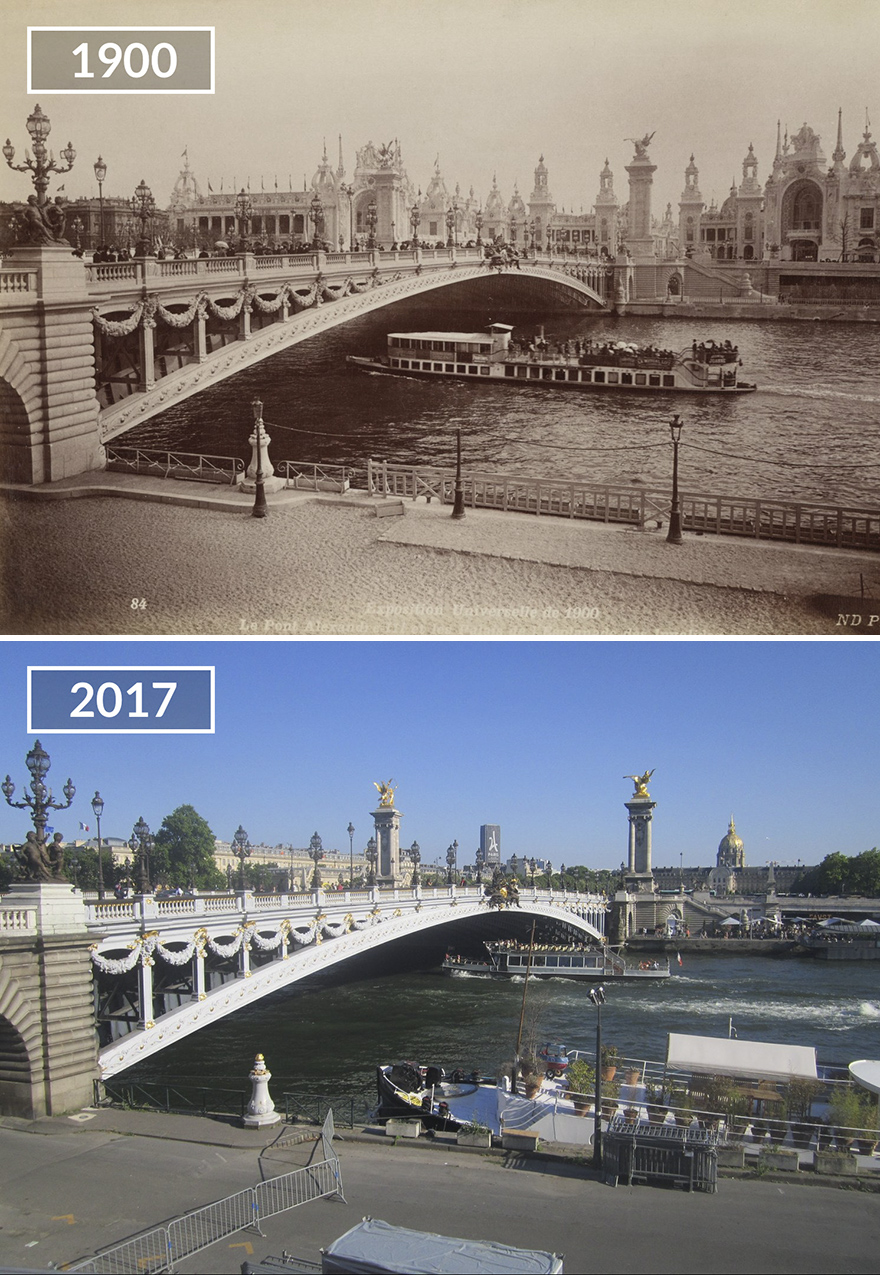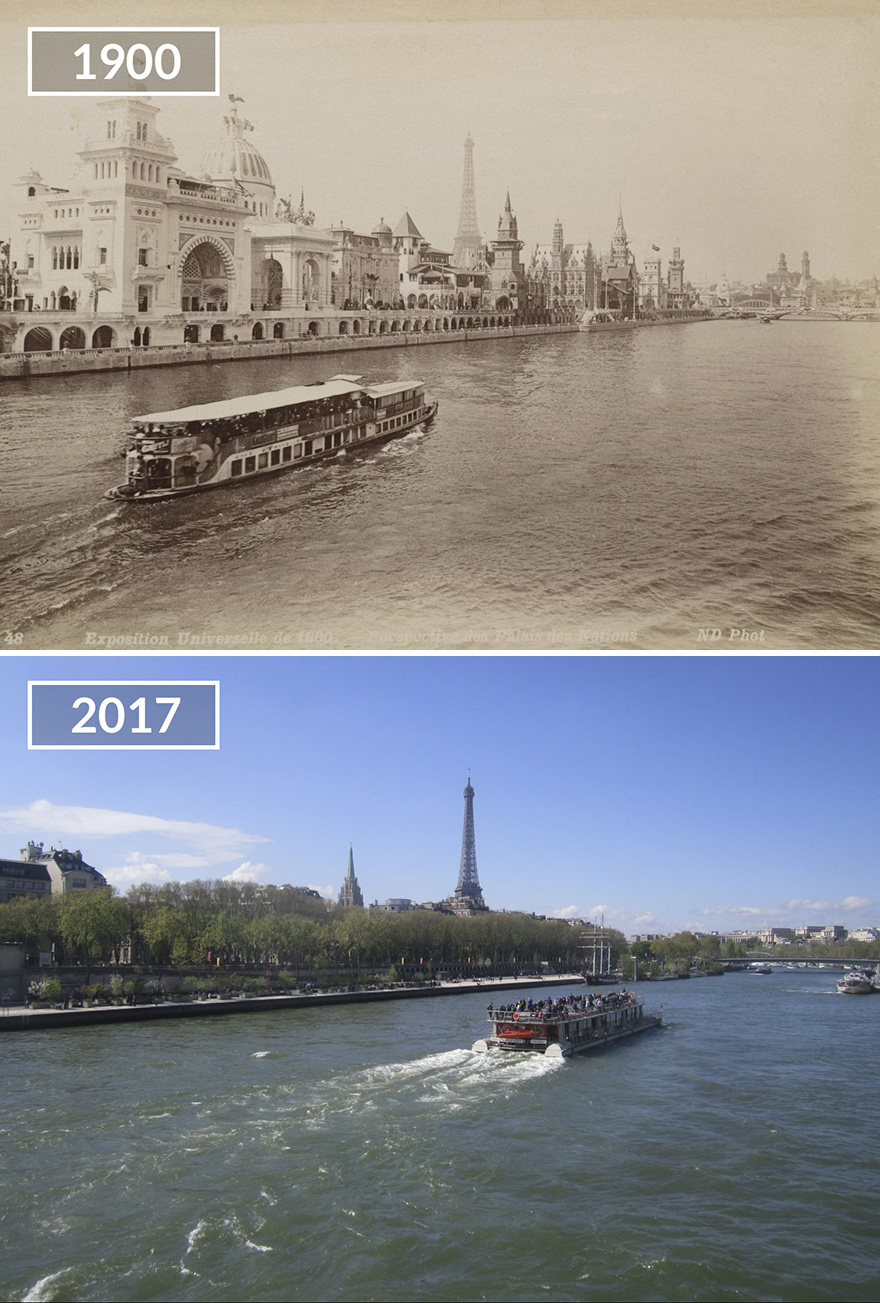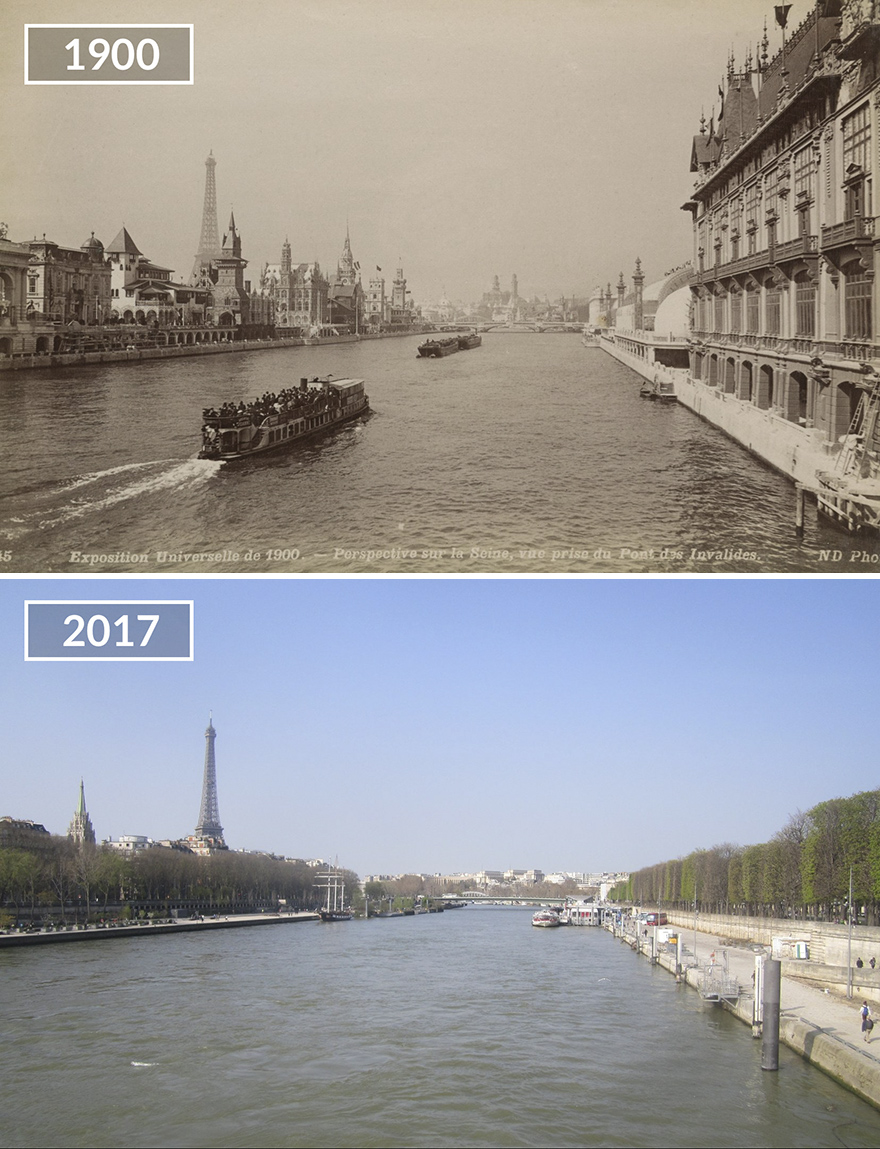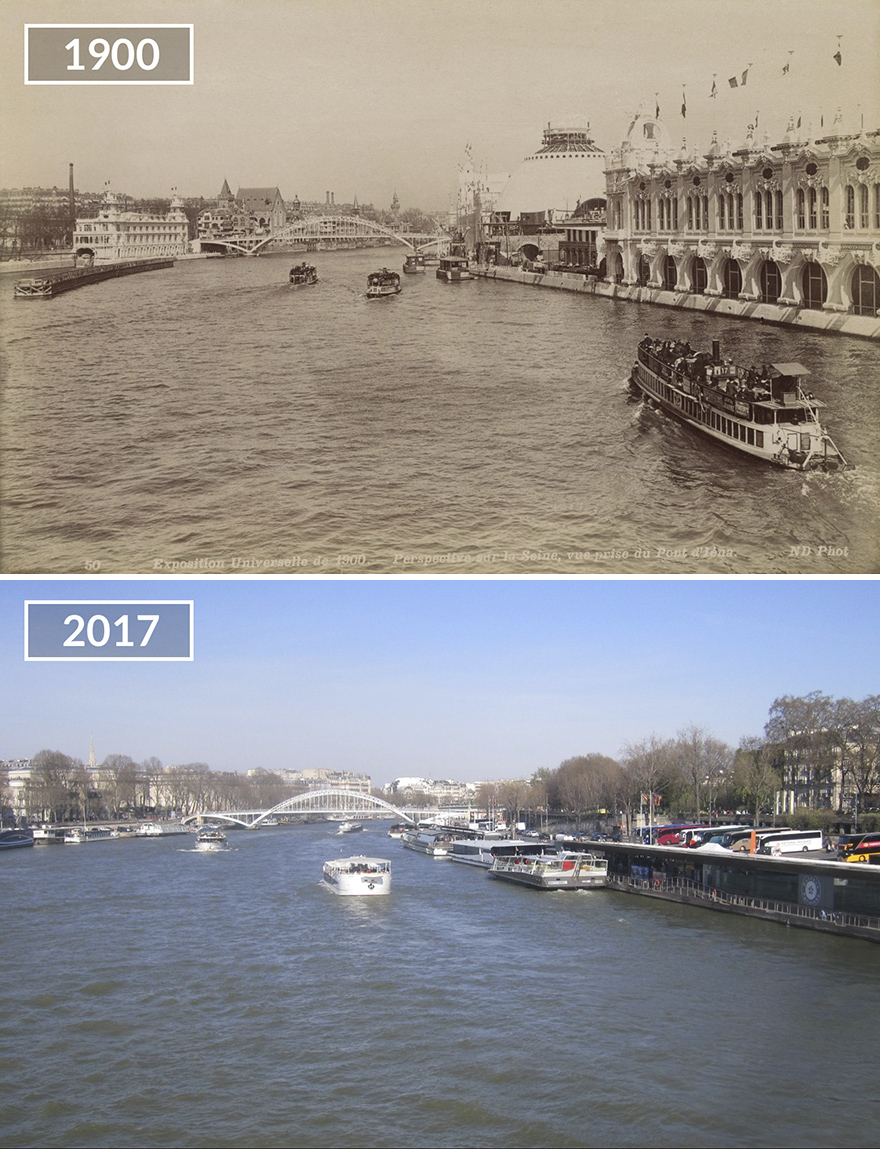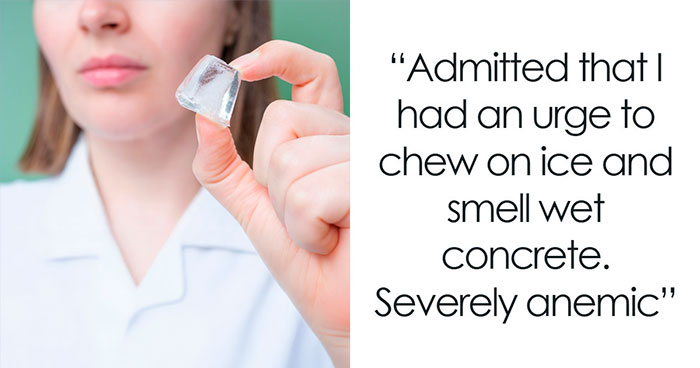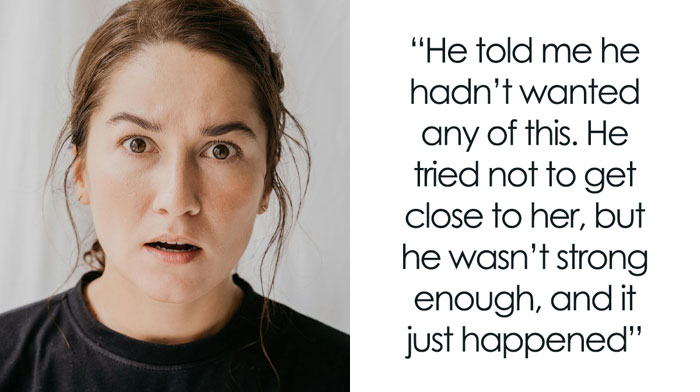We've all seen pictures of Paris. The "City of Love" is one of the most recognizable places on earth due to its iconic architecture. The famous Eiffel Tower standing high above the city, the wonderful bridges built above the river Seine, and the Gothic cathedral of Notre Dame.
But would you recognize the Paris of the year 1900? These "Before and After" pictures prove that Paris was once even more beautiful than today!
More info: re.photos
This post may include affiliate links.
Eiffel Tower And Jardins Du Trocadéro
In the foreground one can see the water basin of the Jardins du Trocadéro, in the center left and right the houses of Algeria, which were part of the colonial exhibition.
Behind is the Pont du Iéna, which connects the Jardins du Trocadéro with the Champ de Mars.
Behind one can see, from left to right, the dome of the Invalides, the Eiffel Tower, the Palais de l'Electricité, with a monumental water tower, flanked by the two chimneys of the engine room, and finally the Ferris wheel ("Grande roue"), to the right.
The world fair was attended by over 48 million people.
Tour Eiffel And Globe Céleste
Next to the Eiffel Tower, the "Globe Céleste" was one of the main attractions in Paris. It was a monumental heavenly globe of 45 meters in diameter, in which visitors could sit in a chair, while panoramas of the solar system were passed over. The ball was carried by 4 pillars, between which stairs and elevators allowed the visitors the ascent.
In the "Marerama", the building with the four corner towers to the left, visitors were simulated to be on the deck of a ship with a panorama of the large Mediterranean ports.
The exhibition pavilions located directly on the shore on the left were dedicated to navigation, trade and navigation.
So all these pictures are actually 'Paris 100 years ago during the World Fair'
View On Seine From Pont De L'alma
The "Vieux Paris" was a selection of temporary buildings erected solely for the World Fair and designed to give the visitor an idea of what the city would have looked like in the Middle Ages.
The buildings to be seen in the picture were part of the Renaissance quarter. Very striking is the tall building with the two towers ("Le Grand Châtelet"), whose style dates back to the time of Louis XII. (1462-1515).
As only survivor of the world exhibition of 1900 remains the pedestrian bridge "Passerelle Debilly".
Singapore Fortaleza, Brazil Nairobi, Kenya Melbourne, Australia Dubai Jakarta, Indonesia Paris, France France Facts Toronto, Canada San Francisco, California
Esplanade Des Invalides
Pont Alexandre III was named after the Czar of Russia and symbolized the Franco-Russian friendship. With a width of 40 m, it was the largest bridge in Paris during the 19th century.
Impressive are not only the splendid ornaments, but also the high technical performance: it spans the Seine in a single arch of 107 m, without forming a curve which would hinder the perspective of the Invalides.
Behind it lies the Esplanade des Invalides, the forecourt to the Hôtel des Invalides. At the occasion of the world exhibition, it was lined with impressive exhibition palaces dedicated to the manufactory, the arts and the industry.
Palais Des Nations
The "Rue des nations" (Foreign Nations street) was located on the left bank of the Seine river, between the Eiffel Tower and the Esplanade des Invalides.
It housed most of the foreign pavilions at the Fair (some were also located in the Trocadéro gardens, on the other side of the river, and in front of the Eiffel Tower).
The buildings on that image are (from left to right): the Ottoman pavilion, United States' pavilion, the Austrian pavilion, Bosnia-Herzegovina's pavilion, the Hungarian pavilion, the British pavilion, the Belgian pavilion, the Norvegian pavilion, the German pavilion, the Spanish pavilion and the monegasque pavilion. Both the Eiffel Tower and the Trocadéro palace are visible in the background of the picture.
View On Seine From Pont Des Invalides
On the left side of the image one can see the foreign pavilions, among which (from left to right): the American pavilion, the Austrian pavilion, Bosnia-Herzegovina's pavilion, the Hungarian pavilion, the British pavilion, the Belgian pavilion, the Norwegian pavilion, the German pavilion, the Spanish pavilion, and the Monegasque pavilion.
On the other side of the river, the two minaret-like towers of the Trocadéro are also visible, as well as the Pavilion de la ville de Paris (Pavilion of the city of Paris), which is the building standing on the right side of the image.
View On Seine From Pont D'iéna
The building on the right side was a pavilion dedicated to trade and navigation. Behind it, one can see the "pavillon du Creusot" (the round-shaped building next to the bridge).
Le Creusot is a French town famous for its metallurgy, and therefore the pavilion housed many exhibits and artifacts on the topic.
Most of the differences seem to be temporary additions for the World Fair.
Most of the differences seem to be temporary additions for the World Fair.

 Dark Mode
Dark Mode 

 No fees, cancel anytime
No fees, cancel anytime 







